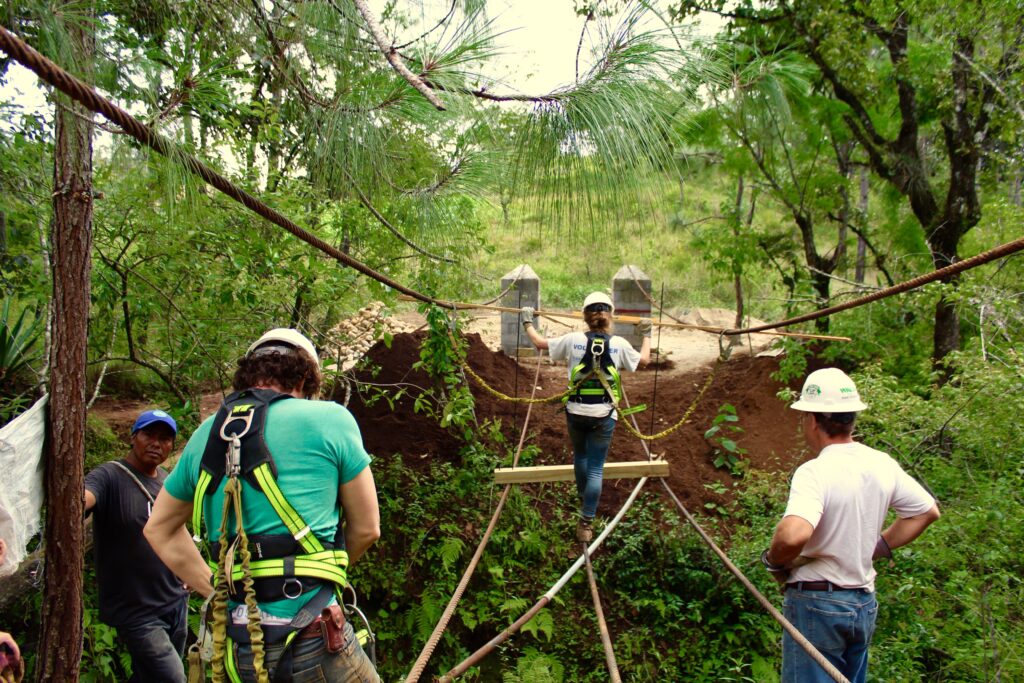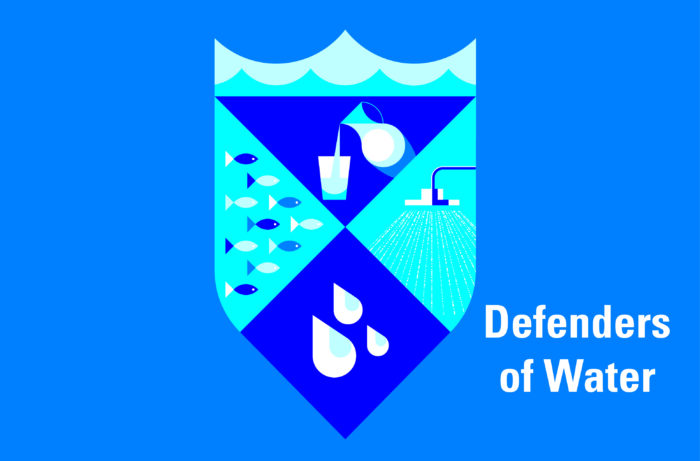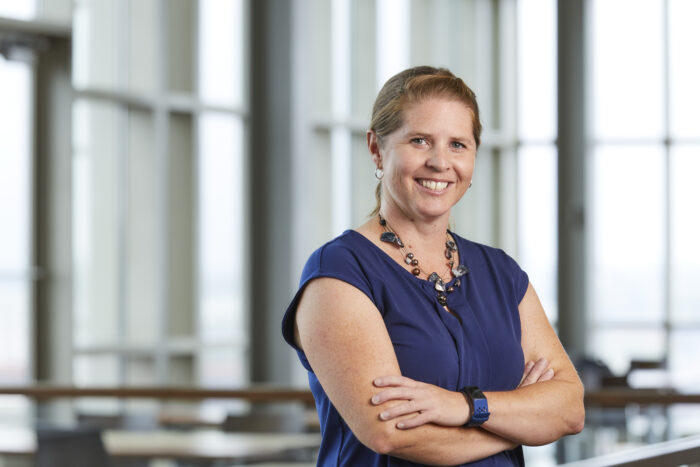When Dr. Kassidy O’Malley first started at Marquette as an environmental engineering major in the Opus College of Engineering, she was not convinced that engineering, or even Marquette University, would be the right fit. Like many new college students, she had a natural skepticism about the many possible paths ahead, but took a chance on a few unfamiliar experiences at Marquette to see if they might help her discern who she wanted to be.
Nine years later, O’Malley has earned her doctorate as an environmental engineer and now departs Marquette as an expert in the field with years of experience in academic research and global service work.
In the summer following her first year, O’Malley experimented with the research side of environmental engineering, working in Marquette’s Water Quality Center as part of the Opus College’s Summer Undergraduate Research Fellowship program. Her work initially began in studying emerging contaminants — substances recently identified as potential environmental and health threats, such as pharmaceuticals, PFAS, and microplastics — in drinking water. The hands-on work to help solve complex environmental problems was an immediate draw for O’Malley, but looking back she also credits the people and community of the lab for shaping her time at Marquette.
“I really enjoyed conducting academic research and developed great relationships with faculty and graduate students,” O’Malley says. “I decided to stay at Marquette for graduate school, a decision that was primarily influenced by the relationships I developed.”
The Water Quality Center became a second home, and O’Malley continued her research there throughout her remaining undergraduate years, including each summer break.
In tandem with discovering her passion and talent for research, O’Malley also immersed herself in the global service work of Marquette’s chapter of Engineers Without Borders, a student organization that designs and implements sustainable infrastructure projects alongside communities in Guatemala. As an undergraduate, she supported multiple project teams and earned the role of project manager in her junior year, traveling to Guatemala three times to help with the construction of pedestrian bridges with various local communities. It was these experiences that transformed O’Malley into the servant leader she is today.

Her work with the Water Quality Center and Engineers Without Borders did not end after she earned her undergraduate degree. Post-graduation, she continued to volunteer with Engineers Without Borders as a member of the organization’s regional steering committees, serving as administration, vice president and president. Her leadership helped the organization navigate the uncertainty of the pandemic, allowing it to return to its in-person operations today.
Continuing at Marquette as a master and then a doctoral student, O’Malley’s shifted her research focus to investigating emerging biological contaminants in stormwater runoff. Her research progressed through three phases. First, identifying biological emerging contaminants in stormwater runoff and tracing their presence through traditional stormwater infrastructure (e.g., curbside drains, storm sewers, and storm sewer outfalls). O’Malley and collaborators found that traditional infrastructure transports these contaminants downstream into our rivers, and so the second phase of research focused on the impact of the transport of these contaminants into surface water environments. In the final phase, O’Malley’s team delved into exploring the efficacy of green stormwater infrastructure as an alternative to conventional infrastructure, aiming to mitigate the transport of biological contaminants and minimize their impact on rivers and lakes.
Near the end of her doctoral program, this work resulted in a publication in the Journal of Hazardous Materials, with O’Malley as the first author alongside her faculty advisors and other expert collaborators. The journal is considered one of the top publications in their field, making it an especially remarkable achievement for a graduate student.
“This publication was immensely gratifying,” says O’Malley. “It not only validated the hard work and dedication invested in my research but also serves as a testament to the collaborative efforts of the entire project team. Moreover, it provides a sense of fulfillment to know that our findings have the potential to contribute to advancements in environmental sustainability and public health practices.”
On Saturday, May 11, O’Malley was officially hooded with her doctorate at Marquette’s 143rd Commencement, O’Malley’s final graduation. She has now accepted a full-time position as a Water Resources Engineer at Jacobs, where she will continue to use her gifts to solve environmental challenges and serve communities.
“I have been a student at Marquette for nine years and in that time have met and worked with countless individuals who have inspired me with their own dedication to improving Marquette and the world around us,” says O’Malley. “The relationships I have developed from both research and volunteering with EWB make me feel very fortunate because they are the reason why I stayed at Marquette for my master’s and PhD and the reason why I have had so much success.”



